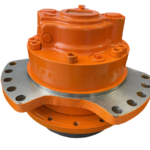Why Home Security Cameras Are a Must-Have
Let’s face it—home security is more important than ever. Whether you’re a homeowner or renting, protecting your property should be at the top of your priority list. But here’s the kicker: with so many options out there, finding the best home security cameras can feel overwhelming. So, how do you navigate this sea of choices?
In this guide, we’ll break down everything you need to know, from types of cameras to installation tips, and even answer some of the most common questions. By the end, you’ll feel confident in choosing the right security system for your home. Ready to dive in? Let’s get started!
Types of Home Security Cameras: What’s Out There?
Before you head to your local hardware store or scroll through endless online listings, it’s crucial to understand the types of home security cameras available. Each serves a specific purpose, so knowing the difference can help you make an informed decision.
1. Indoor Cameras
Indoor cameras are designed to monitor the inside of your home. They’re perfect for keeping an eye on your pets, kids, or valuable belongings. These cameras are typically smaller, more discreet, and can easily blend in with your home decor.
Key Features:
- Wide-angle lenses
- High-definition video quality
- Motion detection
2. Outdoor Cameras
Outdoor cameras are built to withstand the elements. These heavy-duty cameras usually come with features like weatherproofing, night vision, and motion sensors to capture every movement outside your home.
Key Features:
- Waterproof and dustproof design
- Infrared night vision
- Motion-activated alerts
3. Doorbell Cameras
A newer addition to the market, doorbell cameras combine the functionality of a security camera with the convenience of a doorbell. With these devices, you can see who’s at your door even when you’re not home, thanks to real-time video streaming directly to your smartphone.
Key Features:
- Two-way audio
- Motion detection
- Live video feed via app
4. Wireless Cameras
Gone are the days of drilling holes and running cables throughout your home. Wireless cameras offer flexibility in placement since they connect through Wi-Fi. They’re also relatively easy to install and relocate.
Key Features:
- Wi-Fi enabled
- Battery or solar-powered options
- Easy DIY installation
5. Wired Cameras
If you prefer a more stable connection and don’t want to rely on batteries or Wi-Fi, wired cameras are the way to go. These cameras are hardwired into your home’s electrical system, providing a more reliable, constant power source.
Key Features:
- Consistent power supply
- Professional installation recommended
- No reliance on Wi-Fi
Key Features to Look for in Home Security Cameras
When shopping for home security cameras, it’s easy to get overwhelmed by all the tech jargon. But here’s the thing—focusing on a few key features can simplify your decision.
1. Resolution
Higher resolution equals clearer footage. You’ll want at least 1080p HD video for detailed images. Some cameras even offer 4K resolution, although that may be overkill for some households.
2. Night Vision
Many crimes happen at night, so having a camera with night vision is essential. Look for infrared (IR) LEDs, which allow the camera to capture clear video even in total darkness.
3. Motion Detection
Why record 24/7 when you only need footage of suspicious activity? Motion detection allows your camera to activate only when movement is detected, saving you storage space and making it easier to review footage.
4. Field of View
A wider field of view means the camera can cover more ground. Look for cameras with at least a 120-degree field of view to ensure you don’t miss any action.
5. Cloud Storage vs. Local Storage
Some cameras offer cloud storage, while others have local storage options like SD cards. Cloud storage is convenient but may come with monthly fees. Local storage can be a one-time investment but has limited capacity.
How to Install Home Security Cameras: DIY or Professional?
Once you’ve chosen your ideal security camera, the next question is: Do you install it yourself or hire a pro? The answer depends on your comfort level with tools and technology.
DIY Installation
Wireless cameras are often designed for DIY installation. They come with detailed instructions, and most can be set up with just a few tools and a Wi-Fi connection. These cameras are perfect if you’re looking for a quick and affordable option.
Pros:
- Cost-effective
- Easy to relocate
Cons:
- May lack advanced features
- Dependent on Wi-Fi signal
Professional Installation
Wired cameras, on the other hand, typically require professional installation. This ensures everything is correctly wired and operational. Although it’s more expensive upfront, professional installation guarantees that your system is secure and functioning optimally.
Pros:
- Reliable and robust system
- Long-term investment
Cons:
- Higher cost
- Invasive installation process
Common Mistakes to Avoid When Buying Home Security Cameras
Shopping for home security cameras isn’t just about picking the one with the best reviews. It’s about finding the right fit for your needs. To help, here are some common mistakes to avoid:
- Focusing only on price: The cheapest option might save you money now but cost you in the long run. Always balance price with quality.
- Overlooking camera placement: It’s crucial to place cameras in high-traffic areas, like entrances and hallways. Don’t make the mistake of hiding them where they can’t do their job.
- Ignoring compatibility: If you already have smart home devices, make sure your new security camera is compatible with them.
- Forgetting about power sources: Whether it’s wired, battery-powered, or solar-powered, consider how your camera will get its power before buying.
FAQs About Home Security Cameras
- How much do home security cameras cost?
The cost can vary widely, ranging from $50 to over $500, depending on features, brand, and installation needs. Basic models are affordable, while advanced systems with cloud storage and AI features cost more. - Can I use a home security camera without Wi-Fi?
Yes, wired cameras do not rely on Wi-Fi. However, wireless models typically need a Wi-Fi connection to stream video and send alerts to your smartphone. - Where should I place my home security cameras?
Common placement areas include front doors, back entrances, driveways, and garages. Indoors, you might want to place them near main hallways, living rooms, or any area where valuables are stored. - How long do security camera recordings last?
This depends on storage capacity and settings. With local storage, recordings are typically overwritten after a certain period. Cloud storage often offers monthly plans with specific data limits. - Are home security cameras worth it?
Absolutely! They offer peace of mind by providing real-time monitoring, deterrence against break-ins, and evidence in case of an incident.
Summary: Invest in Your Peace of Mind
When it comes to securing your home, home security cameras are a game-changer. From preventing burglaries to monitoring daily activities, these devices offer a level of protection that’s hard to beat. Whether you go for a simple indoor camera or a full-fledged outdoor system, the key is choosing one that fits your needs and budget.
Remember, not all cameras are created equal. Consider your home’s layout, your tech comfort level, and your specific security concerns before making a decision. With the right camera in place, you can rest easy knowing your home is safe and sound.
Authoritative Sources:
- www.consumerreports.org/home-security
- www.safety.com/best-home-security-cameras
- www.cnet.com/home/security/best-home-security-cameras







